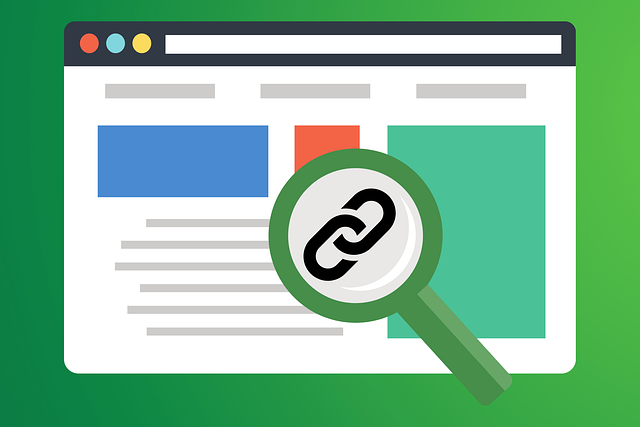In today's digital market, a structured brand representation using Schema for Businesses is key. Contact Info and Organization JSON-LD schemas enhance user experience by making critical details like names, addresses, phone numbers easily accessible. This optimization improves search engine visibility, increases click-through rates, and fosters deeper brand understanding through knowledge panels.
In today’s competitive market, understanding your organization’s brand and structure is crucial. Implementing schema, a structured framework, provides a robust solution by describing entities and their relationships within your business. This article delves into understanding schema as a tool for enhancing brand knowledge. We’ll explore defining key business entities, structuring data with attributes, and visualising insights through structured knowledge panels. By adopting schema for businesses, you gain deeper insights and operational efficiency.
- Understanding Schema: A Framework for Organization
- Defining Business Entities and Their Relationships
- Structuring Data: Attributes and Properties
- Implementing Schema for Enhanced Brand Knowledge
- Visualizing Data: Creating a Structured Knowledge Panel
- Benefits of Schema: Improved Understanding and Efficiency
Understanding Schema: A Framework for Organization

In today’s digital era, a well-structured brand representation is key to standing out in a crowded marketplace. Here’s where Schema comes into play as a powerful tool for businesses. A Schema serves as a framework that allows organizations to describe themselves using structured data, providing a clear and consistent way to present their information. By implementing this concept, businesses can ensure that critical details about their brand are easily accessible and understandable across various online platforms.
When it comes to showcasing an organization’s essence, the Contact Info Schema is a valuable component of Structured Brand Data. It encompasses essential elements such as the company’s name, address, phone number, email, and website, all presented in a JSON-LD format. This structured approach enables search engines and other applications to interpret and display this data seamlessly, creating an efficient knowledge panel that enhances user experience and facilitates easy brand discovery.
Defining Business Entities and Their Relationships

Defining Business Entities and Their Relationships is a critical step in implementing any schema for businesses. This involves identifying core entities within your organization—such as departments, roles, products, or services—and mapping out their hierarchical connections. By structuring this data, you create a clear, consistent representation of your brand, making it easier for search engines and other systems to understand your business ecosystem.
Contact Info Schema and Organization JSON-LD are powerful tools in this process. They provide structured brand data that enriches knowledge panels with essential details like company name, address, phone number, working hours, and more. This structured information not only enhances user experience but also improves the visibility and discoverability of your business across various platforms, ensuring a seamless and informative interaction with your brand.
Structuring Data: Attributes and Properties

Implementing a schema to structure your organization’s data is a powerful way to enhance brand understanding and optimize knowledge panel displays. When we talk about structuring data, it involves defining key attributes and properties that describe various aspects of your business. This process allows search engines to interpret and organize information about your organization more effectively. For example, in an Organization JSON-LD schema, you can include details like the company’s name, logo markup, address, phone number, and even a brief description from the About Us section.
Each attribute plays a crucial role in painting a comprehensive picture of your brand. By using structured data, you enable search engines to display dynamic and accurate information about your business directly on search results pages. This not only improves user experience but also increases visibility and click-through rates. For instance, the logo markup can be extracted from the schema to show the company logo alongside search results, making it instantly recognizable to potential customers.
Implementing Schema for Enhanced Brand Knowledge

Implementing Schema for Enhanced Brand Knowledge
Schema markup, a powerful tool for businesses, plays a pivotal role in enhancing brand understanding and knowledge representation. By utilizing structured data in the form of Schema for Businesses, organizations can ensure that their online presence becomes more semantic and machine-readable. This process involves adding specific tags or snippets of code to web pages, providing search engines with crucial information about your business. For instance, Contact Info Schema allows you to highlight essential details like phone numbers, addresses, and opening hours, making it easier for customers to connect with your organization.
The Organization JSON-LD format is particularly beneficial for showcasing detailed brand information. It enables you to include key elements such as the company’s name, logo, description, and even links to social media profiles. Moreover, the About Us Schema provides a dedicated section to share your organization’s history, mission, and values. By implementing these Schema types, businesses can create structured knowledge panels, offering visitors a comprehensive overview at a glance.
Visualizing Data: Creating a Structured Knowledge Panel

Visualizing data is a powerful way to present complex information, and when it comes to representing your organization, structured knowledge panels offer a clear and engaging solution. By implementing schema for businesses, specifically using Organization JSON-LD, you can create an About Us Schema that provides a concise yet comprehensive overview of your company. This structured data allows search engines to understand and interpret critical details about your business, including its name, logo (Logo Markup), address, operating hours, and more.
A well-designed knowledge panel showcases this information in a visually appealing and organized manner. It can include key metrics, services offered, team profiles, customer testimonials, and even interactive elements. This not only enhances user experience but also improves brand understanding by providing a one-stop source for essential organizational data.
Benefits of Schema: Improved Understanding and Efficiency

Implementing schema for your business offers significant advantages when it comes to understanding and managing your organization’s data. By utilizing structured data formats like About Us Schema or Contact Info Schema, businesses can enhance their online presence and provide a clearer picture of their operations to search engines and users alike. This structured knowledge allows for more efficient indexing and display of information on various platforms.
For instance, Organization JSON-LD helps in presenting critical details about the business, including its name, address, phone number, and operating hours, in a standardized manner. This not only aids search engines in accurately interpreting and displaying company data but also contributes to improved user experience. It enables potential customers to quickly gather essential contact and location information, fostering better engagement and accessibility.
